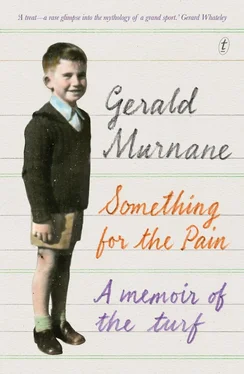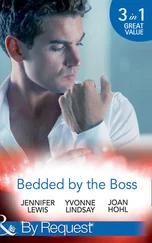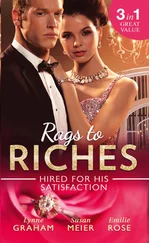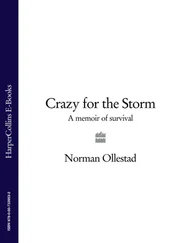Races in those days took a long time to start. This was before starting stalls came into use. The horses were supposed to walk in a line towards a barrier consisting of rubber strands that could be released into the air at short notice by the starter. Sometimes, a field of horses would be behind the barrier for five minutes before their riders could get them to walk forward together. During this time, if the race was being broadcast, the commentator would have to fill in with naming the troublemakers or making small talk until his sudden cry of ‘They’re racing!’ or ‘They’re away!’ or ‘They’re off!’
The young man in front of me began imitating a racing commentator while a field was behind the barrier. If I had known what he was up to, I would have pushed my way into the crowd and fled the scene. But I had no suspicion of what he was about to say and, anyway, his patter was brief and he reached his punch line with hardly any preamble. ‘Peter Pan, Carbon Copy…’ He named a few of his imaginary horses…And I’m sure today that he would have locked eyes with the young woman on my right while he said, ‘Ladies’ Pants…they’re off!’
During the remaining minutes before the field was off at Mornington and during the two minutes while the race was run, I dared not look at any of the young persons around me, and as soon as the field had passed the post I made off into the crowd. I had looked at none of the young persons, and I was so uncomfortable that I never afterwards recalled any sort of conversation that may have begun among them. I neither looked nor heard, and yet I somehow sensed the atmosphere and was amazed to find that it seemed not to have changed. Not only had the young woman not slapped the face of the young man nor sent one of her companions in search of a policeman, but there seemed to be between her and the young man the same easygoing mock-wariness as before. How many days or weeks passed before I understood that I was the only person in our little group who had been shocked by what was said?
20. Elkayel and the Enzedders
I’VE MENTIONED THE New Zealanders already. They baffled me. I used to try to outwit them but I mostly failed. Sometimes, as I tried to explain earlier, I was driven to suppose that the cunning of the New Zealanders consisted in their following a wholly predictable course of action while conspiracy theorists such as myself awaited the unfolding of convoluted plots. At other times, their deceptiveness, or what I might have called their old-fashioned crookedness, fooled me completely. I can hardly believe it today, but after having decided, in early October 1960, that Eric Ropiha’s Ilumquh (Black, green Maltese cross and cap) had been set to win both the Caulfield Cup and the Melbourne Cup, I dropped off the horse, as the saying goes, after it was beaten at short odds in a lead-up race to the Caulfield Cup. What was I thinking? Ilumquh won the Caulfield Cup at double-figure odds and would have won the Melbourne Cup but for interference.
I was alerted to Even Stevens (Gold, emerald-green band, red cap) in 1962, but I stupidly put a lot of money on him at his first Australian start. The race was at Caulfield in the week before the Cup. I’ve never seen a rider use less vigour than the rider of Even Stevens used that day. If the jockey had sneezed in the straight, the flashy chestnut would have won, but he didn’t — I mean, neither did. I backed Even Stevens in both cups and collected, but he was at very short odds. His connections had put their money on weeks before, when no one knew anything about the moderately performed horse. I won barely enough to cover my losses from that first dead run.
I’m calling them the Enzedders in this section. My friend David Walton, who might fairly be called a social animal, would always use that term when introducing my wife and me to some or other New Zealanders that he had invited to the numerous gatherings that he organised. ‘This is So-and-so and his wife, So-and-so,’ David would say. ‘They’re Enzedders.’ I was always disappointed to find that the Enzedders at David’s parties knew nothing about racing. Or, did they only say that to keep me from suspecting that they were in Australia as undercover agents for some fiendishly secretive stable at Wingatui or Awapuni?
The year 1964 was a significant year for me. I had left Frankston and was living and teaching in the inner suburbs of Melbourne. In the first weeks of the year, she who had been my girlfriend for the past few months had cast me off, so to speak. This turn of events hardly surprised me. Nor was I surprised when my first day at the races as a bachelor brought me outstanding profits. The day was Oakleigh Plate Day, one of my favourite days at Caulfield. The Oakleigh Plate is run mostly on a hard track, but in 1964 rain fell all day and the track was sloppy. I’ve forgotten how I did it, but I backed five of the eight winners, including Pardon Me, the winner of the Oakleigh Plate. The horse’s trainer was a man named Bede Horan from Sydney, and its colours were a combination of gold and black and red. The Oakleigh Plate is a keenly contested race, but I felt almost from the start that Pardon Me would win. He seemed to be cruising or coasting in fourth or fifth place down the side of the Caulfield track. I remember Oakleigh Plate Day in 1964 as one of the few days when I felt as though I had learned at last how to make money from racing.
The year 1964 promised to be a year of regular race-going and perhaps the sort of profits that I had been trying for years to achieve. The spanner in the works was my having met up with, at my new school in the inner suburbs, a certain young woman who had been at teachers’ college with me five years before. I’d had no interest in her at teachers’ college, but five years had wrought all sorts of changes in the universe, and I asked her out, to use that quaint old expression, in midyear. I took her to the races at Caulfield, and we got on well together. Four months later, when the Spring Carnival was underway, we had made no formal announcement, but we seemed to have agreed that we would eventually become engaged and afterwards marry.
As if all that was not enough, I had made a solemn promise to the young woman, my future wife, that I would enrol as a part-time, mature-age student in an arts course at the University of Melbourne. My course would occupy all my spare time for several years to come. I would have no time for writing poems or short stories or the beginnings of novels. I would probably not even have time for reading form guides or betting on horses. My betting might be curtailed also by my need to save towards the deposit for a house. My girlfriend and I had only modest bank accounts, and eligibility for the federal government’s grant to buyers of first homes depended on regular saving.
Without any prompting from Catherine, my girlfriend and future wife, I resolved to give up betting. I mentioned no period of time. I knew in my bones that my vow could never be permanent. One day I would come back to the punt, but for now I would deposit in our home-savings account each week the sum that I would previously have bet on the Saturday races. My vow would come into operation immediately but with one modification or exemption. The time of year when I made the vow was late October. The Caulfield Cup had only just been run, and the Melbourne Cup was a couple of weeks away. Under the terms of my vow, I was allowed to have one last bet on the Melbourne Cup.
I seem to remember that the entries for the big cups in 1964 included fewer than the usual numbers from New Zealand. Even so, I considered only New Zealand horses when making my final selection for the Melbourne Cup. I looked forward to having my last bet for the time being, if not for all time, on an Enzedder and, of course, on collecting. Not only would I win good money — I’d have the satisfaction of having worked out the Enzedders’ plans.
Читать дальше












